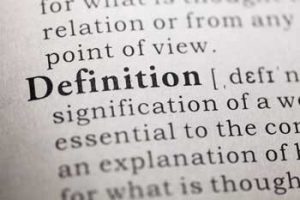Per Se is a Latin term meaning “by itself” or “in and of itself.” In franchising, per se is often used in legal language to indicate that something is inherently true or stands on its own without needing additional proof or context.
 The term per se is commonly used in legal documents and franchise agreements to emphasize that a certain fact, condition, or action is considered valid or significant on its own merit. In franchising, it might describe situations or violations that are automatically considered breaches of the Franchise Agreement—without requiring the franchisor to demonstrate intent or damage. For example, operating an unapproved business using the franchisor’s trademarks could be a violation per se because it inherently undermines the franchisor’s rights.
The term per se is commonly used in legal documents and franchise agreements to emphasize that a certain fact, condition, or action is considered valid or significant on its own merit. In franchising, it might describe situations or violations that are automatically considered breaches of the Franchise Agreement—without requiring the franchisor to demonstrate intent or damage. For example, operating an unapproved business using the franchisor’s trademarks could be a violation per se because it inherently undermines the franchisor’s rights.
Beyond legal usage, per se can appear in discussions of antitrust law, where certain types of business conduct are deemed illegal “per se,” meaning they are unlawful regardless of their actual effect on competition. This distinction helps clarify that some actions are automatically prohibited within the franchise relationship due to their inherent nature or risk to the brand.
Additional Definition: When used in antitrust law, a “per se” violation is one that is inherently illegal once proven.
| Context | Example Usage | Implication |
|---|---|---|
| Franchise Agreement Breach | Operating a competing business is a violation per se. | Considered a breach without the need to show harm or intent. |
| Trademark Infringement | Unauthorized use of franchisor trademarks is unlawful per se. | Automatically constitutes infringement of intellectual property rights. |
| Antitrust Law | Price fixing or market division between competitors is illegal per se. | No justification or economic defense is permitted. |
| Regulatory Compliance | Failure to provide a valid Franchise Disclosure Document before sale may be a violation per se. | Automatically breaches federal and state franchise laws. |
The expression per se originates from Latin, meaning “by itself,” and has been used in English legal writing since the 16th century. In franchising, it became more prominent with the growth of complex regulatory frameworks in the 1970s, especially as franchise law borrowed concepts from contract and antitrust law. The term continues to appear in franchise agreements, court opinions, and disclosure documents to convey the idea that certain actions or conditions require no further proof to establish their legal significance. Its use adds precision and formality to legal drafting, ensuring that certain clauses are interpreted as inherently binding or inherently prohibited.
Also See: The Educated Franchisee, 3rd Edition
'Using the franchisor’s trademarks without authorization is a violation per se of the Franchise Agreement.'
'Certain antitrust violations, such as price fixing, are illegal per se under U.S. law.'
'The franchisee’s failure to obtain required permits was deemed negligence per se under the local code.'
Per se is a Latin legal term meaning “by itself” or “inherently,” used in franchising to denote that a particular action or condition carries legal significance without further explanation or proof. Whether applied to breaches, trademarks, or compliance, understanding when something is a violation per se helps franchisors and franchisees recognize automatic obligations and liabilities within the franchise relationship.